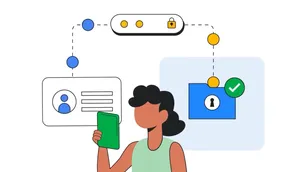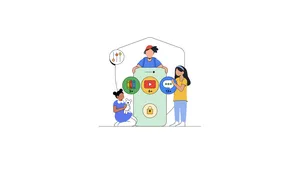6 barriers to computer science education for girls in Europe

Computer science is considered a fundamental skill for all young people, alongside reading, writing and mathematics. But it is only taught as a required primary school subject in 12 of the 37 countries that are part of Eurydice, the network that explains how education systems in Europe are organized and how they work.
Every student deserves the chance to access a computer science education to help shape their future. But the underrepresentation of minority groups, including women, is a pervading challenge and represents a significant loss of talent, diversity and economic opportunity – to the tech sector and beyond.
In 2014, we released a report on the factors that influence young women’s decisions to pursue degrees in computer science in the United States, and identified encouragement and exposure as the leading factors influencing their choices. Now, we have commissioned a new study to build an updated and culturally nuanced understanding of why the gender divide in computer science in Europe persists. Based on interviews and surveys with more than 3,000 students and education leaders across Europe, our report identifies six key barriers impacting the participation of girls in computer science studies:
- Computer science is often perceived as an isolated subject, rather than a skill to develop. When integrated with other subjects, though, 41% of girls are interested in studying computer science.
- Role models are important, but it’s not just about having more of them. Girls and young women need to be exposed to a fair and varied representation of relatable identities (i.e. age, gender, sexual orientation, race, attainment, and ability) throughout the education pipeline.
- Teachers aren’t getting the support they need to engage students. Educators often aren’t equipped with the depth of knowledge, resources or time needed to teach computer science effectively. Approximately two thirds of European education systems at lower secondary level employ teachers with specialties outside of computer science to teach the subject.
- There’s a disconnect between what students learn in school and what computer science looks like in everyday life. Students aren't aware how computer science can be useful across other subjects and their interests.
- Parents, who are extremely influential to their children' s success, often struggle to support them. Many parents do not understand what computer science is and don’t feel confident enough to talk with their children about it.
- Peer networks in computer science are limited. For girls in particular, peer support is crucial in building the confidence they need in their learning. 20% of the students we surveyed in France and Romania expressed they would feel more confident in their ability to learn computer science if more of their friends did it.
Learn more about how these barriers affect girls and young women in different countries in our market infographics.
We’re proud to work with partners across Europe on initiatives to address some of these barriers. For example, Code Plus has provided hands-on coding workshops, industry workplace visits and career panel discussions to more than 10,000 teenage girls across Ireland to encourage them to consider careers in computer science. In 2022, Fondazione Mondo Digitale (in Italy) and Parent Zone (in the UK) ran parent outreach initiatives to educate parents to better understand the importance of computer science skills for their children’s future.
Despite these efforts, much more needs to be done to systematically address the barriers identified in our report. We are committed to this shared mission of giving all students the opportunity to pursue computer science, and supporting young women in becoming the tech creators and leaders of the future. As it has for us, we hope this new report offers insights that inform and inspire action from teachers, parents and caregivers, nonprofit leaders, policymakers, and all others doing critical work in this space.







